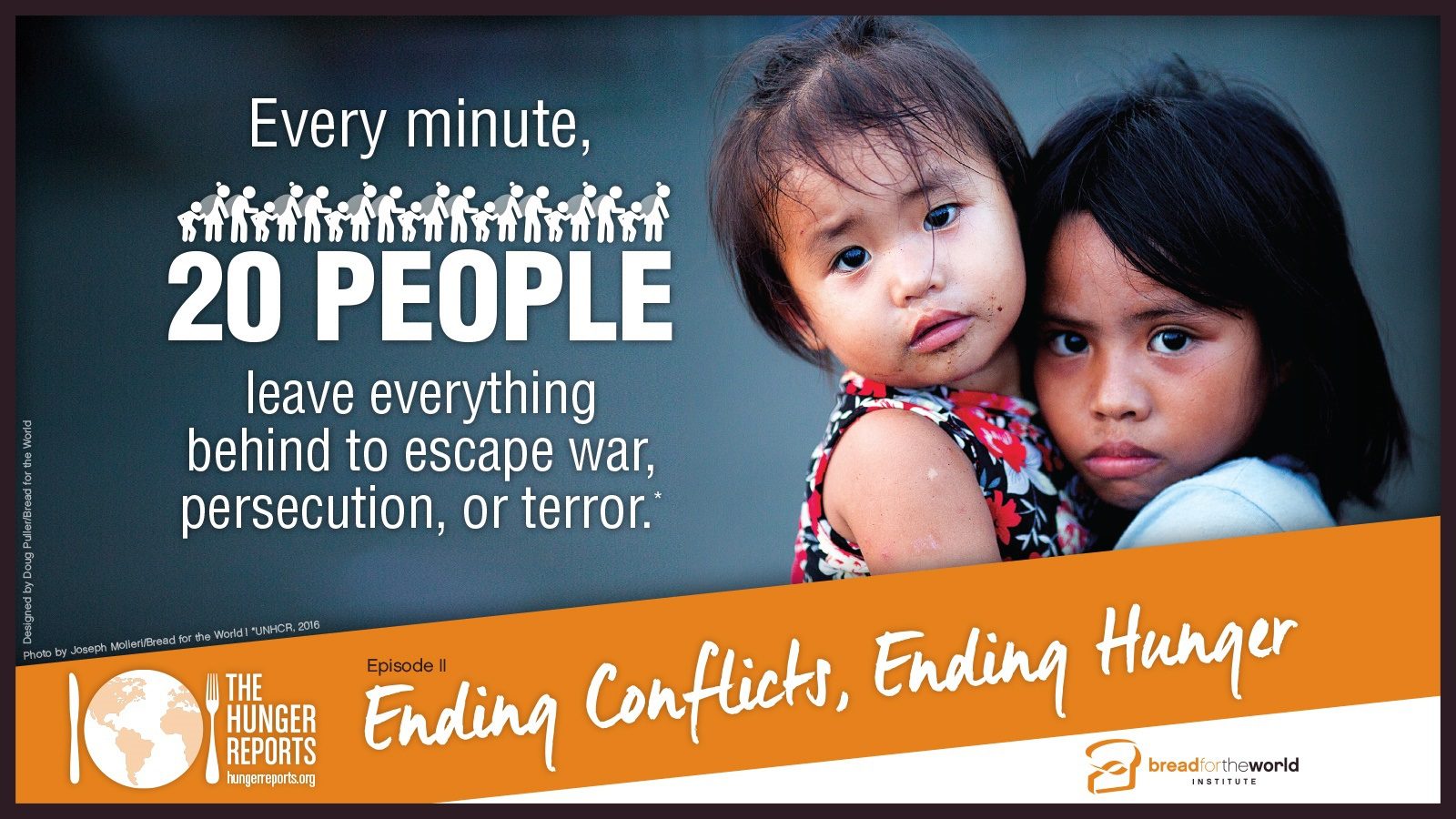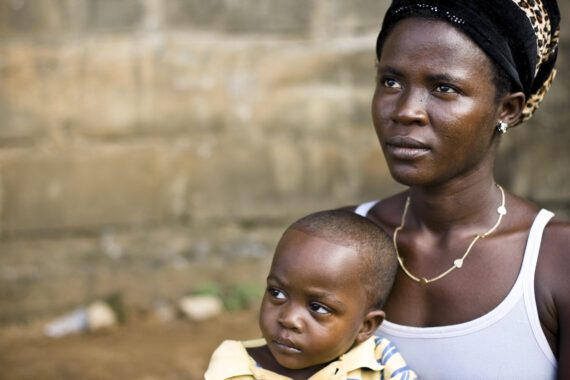Washington, D.C. – A new video released today by Bread for the World Institute says that conflict zones are “the last mile” in the goal to end world hunger by 2030. The video, “Ending Conflicts, Ending Hunger,” debuts as the world is in the midst of a refugee crisis and more than 20 million people in four countries are at risk of starvation.
“Displaced people, the refugees, and the near-famine conditions are all direct results of conflict,” said Asma Lateef, director of Bread for the World Institute. “Human society relies on infrastructure…When conflict destroys infrastructure, communities, and even countries, can lose decades of progress against hunger and disease.”
“Ending Conflicts, Ending Hunger” is the second in a new video series based on the award-winning 2017 Hunger Report: Fragile Environments, Resilient Communities, published by Bread for the World Institute. The video features Anwar Khan, chief executive office of Islamic Relief USA.
Fragile Environments, Resilient Communities explains how state fragility stands in the way of ending hunger and extreme poverty. It offers recommendations on how to address the long-term challenges of civil conflict, poor governance, and vulnerability to climate change.
“Many people in the world, especially to do with hunger issues, are just surviving. Conflict pushes them over the edge,” Khan said
After a civil war, a country has a 50-50 chance of falling back into conflict. Development programs can improve these odds by ensuring that people’s basic needs are met and enabling them to work together to rebuild infrastructure and return to life.
“People have become bored of famines in Africa. We can’t be bored of our fellow brothers and sisters in humanity,” Kahn said. “The enemy is hunger and starvation. That’s the war we need to be having, on hunger and starvation.”



